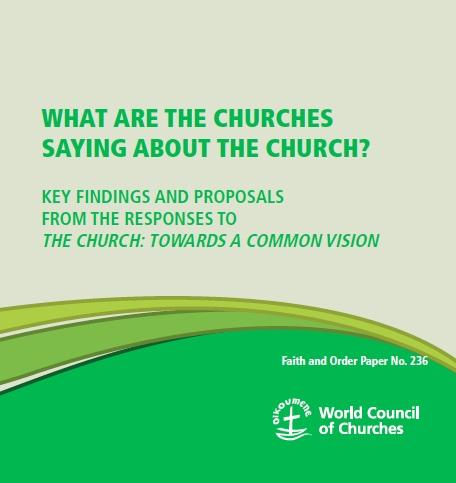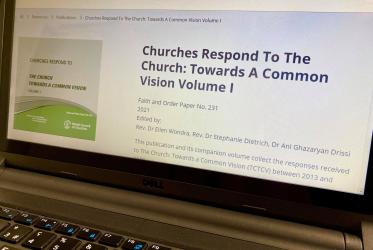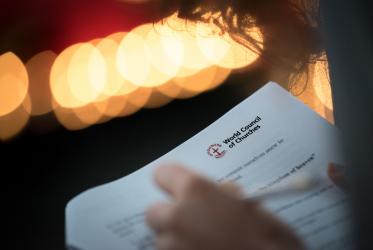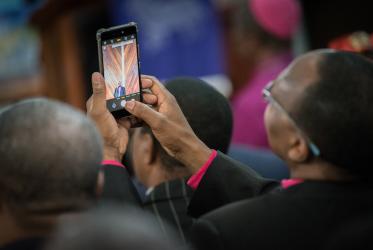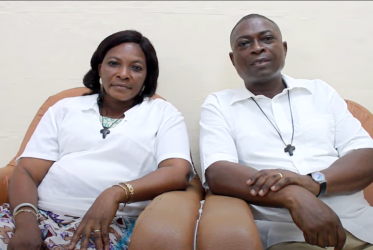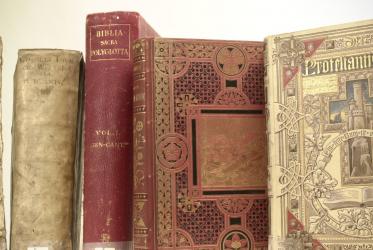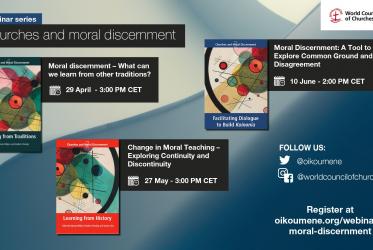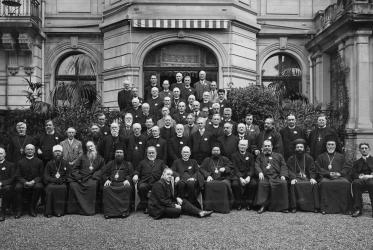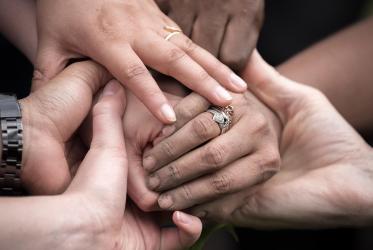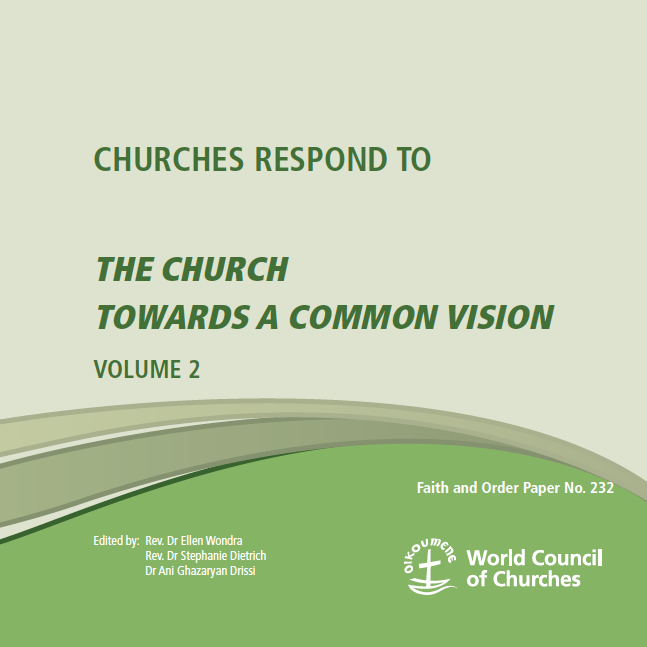Displaying 121 - 140 of 396
Key Findings and Proposals from the Responses to The Church: Towards a Common Vision
21 June 2021
Reshaping mission and the church during COVID-19
11 March 2021
Churches Respond to "The Church: Towards a Common Vision"
23 February 2021
Churches Respond To The Church: Towards A Common Vision Volume I
Faith and Order Paper No. 231
23 February 2021
Churches Respond To the Church: Towards a Common Vision Volume II
Faith and Order Paper No. 232
23 February 2021
